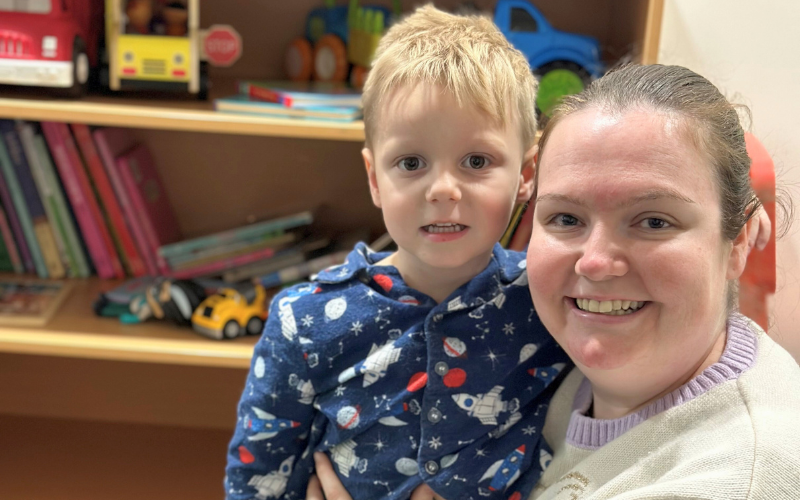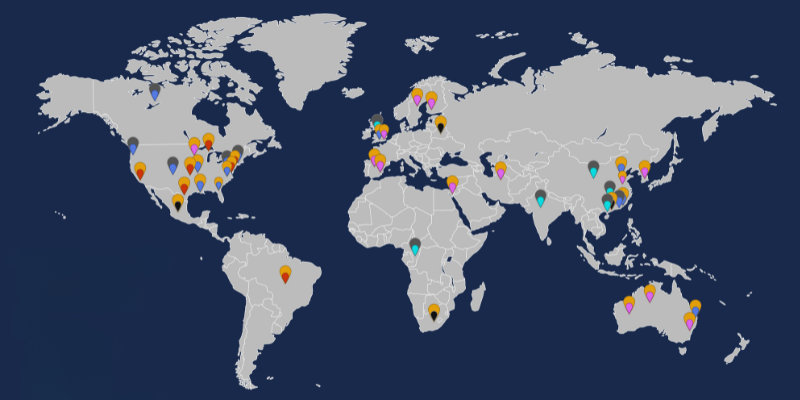Search

News & Events
Vertex grant to support research into treatment strategies for cystic fibrosis lung diseaseDr Daniel Laucirica, a research officer with the Wal-yan Respiratory Research Centre, will undertake new research into potential treatment strategies to prevent lung damage in people with cystic fibrosis (CF), under the mentorship of Associate Professor Anthony Kicic - made possible by a Vertex Cyst

News & Events
Respiratory research program recruits 400th participant, marking key milestoneIn September 2024, the Western Australian Epithelial Research Program (WAERP) reached a significant milestone by recruiting its 400th participant.

News & Events
Kids Easy Breathing Study KickstartsThe Kids Easy Breathing Study kickstarts this month, with the aim of finding out how the airway surface is different between infants who develop chronic lung disease after contracting bronchiolitis compared with those who don’t.

News & Events
Study shows climate change will devastate children’s health without fast global actionIncreased numbers of preterm births, higher incidence of respiratory disease and death, and more children in hospitals are some of the stark health outcomes the world is facing from the impacts of extreme climate change.

News & Events
Unique twin study reveals clues to childhood allergiesA study published in Science Advances has revealed that while genetics play a significant role in shaping children's immune systems, environmental factors also influence key immune responses, offering opportunity for preventing allergic diseases.

Our team uses AI to quickly analyse large amounts of genetic data to help discover alternate medications and improve existing treatments.
Research
Factors influencing participation in home, school, and community settings by 6- to 9-year-old children born preterm: a qualitative descriptive studyThere is no published information on preterm children's activities and participation during middle childhood, a time when growth and development are characterised by increasing motor, reasoning, self-regulation, social and executive functioning skills. This study explored the health, activities and participation of children born very preterm during middle childhood (6-9 years) from the perspectives of their parents.
Research
Partial amelioration of a chronic cigarette-smoke-induced phenotype in mice by switching to electronic cigarettesElectronic cigarettes ("e-cigarettes") are often marketed as smoking cessation tools and are used by smokers to reduce/quit cigarette smoking. The objective of this study was to assess the health effects of switching to e-cigarettes after long-term smoking in a mouse model and compare these effects with continued smoking, or quitting entirely.
Research
Pre-Post Intervention to Strengthen and Sustain the Paediatric ESCALATION System (The SPECS): Study ProtocolPromptly recognising changes in an acutely unwell child’s condition is fundamental to prevent tragic outcomes. Western Australian (WA) healthcare facilities used inconsistent and varied paediatric early warning systems. To improve care consistency, a standardised ESCALATION system, inclusive of family involvement and sepsis recognition, was developed.
Research
Tracing the transmission of mpox through wastewater surveillance in Southeast AsiaHigh population density and tourism in Southeast Asia increase the risk of mpox due to frequent interpersonal contacts. Our wastewater surveillance in six Southeast Asian countries revealed positive signals for Monkeypox virus (MPXV) DNA, indicating local transmission. This alerts clinicians and helps allocate resources like testing, vaccines and therapeutics in resource-limited countries.
